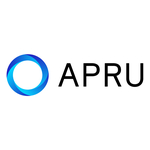Opus CEO Praveen TM on driving AI transformation in banking and payments
In an era where technology is reshaping the world of banking and payments, Opus Technologies is making waves through innovation. The company has launched a host of platforms and solutions to democratise artificial intelligence (AI) adoption among banks and credit unions.
In a recent interview with FinTech Futures, Opus CEO Praveen TM shared his insights on how the financial industry is evolving and how Opus is enabling banks, payment service providers, merchants, and fintechs to build innovative solutions through an open collaboration platform.
The financial services industry is changing at a rapid pace. It seems like there’s an innovation around the corner all the time. Where do you see this trend going?
You are absolutely right about this! Research has shown that the financial services industry has been the leader in adopting the latest technologies. From going digital to cloud-first and now moving to an AI-first approach, the financial industry has constantly evolved to keep pace with customer expectations.

Praveen TM, CEO of Opus: “Innovation is the only way to survive in this competitive market”
We have to give due credit to fintechs for upping the ante for service delivery in the industry. They showed the customer what’s possible with technology upgrades, and traditional banks are being forced to follow suit.
We believe this trend is going to continue in the future. Now, the core banking and payments infrastructure has been upgraded to support the latest innovations in AI and data. The management teams at financial institutions are actively looking at AI for revenue generation, efficiency, and delivering customer-centric products and services. The foundation is laid, and we will start witnessing the fruits of AI innovation in the foreseeable future.
How does Opus, as a technology services provider, fit into this larger picture of digital and AI transformation in the industry?
For the last 26 years, Opus has been a technology enabler for the banking and payments industry. From cards to ATMs to digital transformation, Opus has been the pioneer in supporting financial services to ride the latest technology wave.
The story remains the same for AI. Through constant interactions with customers, our technology experts identified that financial institutions are facing challenges with AI adoption. Lack of tech talent, need for massive investments, and lack of transparency in terms of return on investment (ROI) expectations are among the key reasons for a slow adoption.
To solve these challenges, Opus launched FinGeniusAI Solutions. It’s an open innovation platform that aims to bring together multiple stakeholders – clients, partners, and technology experts – to build along with Opus. The idea is to understand unique problems faced by our clients, provide an actionable roadmap, build successful proof of concepts (POCs) with limited budgets, and showcase potential ROI.
By bringing all the stakeholders together and answering the ROI question with a successful POC, we are removing the bottlenecks for AI adoption for banks and financial institutions in all segments.
What are some of the AI use cases that your team is working on right now?
Since its launch in January this year, the FinGeniusAI team has been actively working with multiple banks and credit unions to build POCs. Some of the use cases are very niche to the banking industry, such as intelligent payment routing, AI-enabled payment enrichment with auto-repair, and ATM cash forecasting.
We are bringing the capabilities of generative AI into banking with use cases such as document analysis and contextual search for information libraries.
Beyond AI, what are the other trends that are going to change the banking and payments landscape in the near future?
AI is definitely the most exciting trend right now for any industry. Other trends that will make a significant impact on how businesses or customers pay and receive money are open banking and embedded finance.
Real-time payments have been a major success. With FedNow, we are witnessing higher adoption rates.
Also, there are small shifts that are going to make big waves in the industry, such as ISO 20022. The last date for migrating to the ISO 20022 standard is fast approaching. This shift is going to improve data exchange between entities and make domestic and cross-border transactions faster and more convenient.
How is Opus contributing to the adoption of these other trends?
With our deep understanding of the industry and the challenges that banks and financial institutions face, Opus has launched the Paysemble platform. It’s a suite of accelerators that aim to simplify technology adoption, migration, and integration. With Paysemble, our aim is to offer a simplified set of workflows, data models, and user interfaces that ensure rapid development and deployment.
We have achieved this by integrating three different layers into the Paysemble platform – message translator, workflow orchestrator, and interface module. These layers are configurable to support a multitude of use cases, such as integration of real-time payments, retail payments, cross-border transactions, and ISO 20022 migration.
The preset workflows are configured to ensure smooth data exchange, compliance, and security for a given use case. Built on cloud and microservices architecture, Paysemble can be easily plugged into the existing IT infrastructure for faster solution delivery.
How do you ensure that your team is ready to take on innovation in an ever-evolving financial landscape?
Yes, technology is evolving at a fast pace, and the industry is along with it. Innovation is the only way to survive in this competitive market. Since our inception, innovation has been our way of approaching a problem and suggesting a tangible solution to our clients.
We continue to learn and grow. A lot of learning comes from our constant and in-depth interactions with customers. As their strategic technology partner, we brainstorm with them and leverage our expertise to formulate a solution. We also collaborate with industry leaders in emerging technologies. These collaborations give us a deep understanding of the underlying frameworks that could be translated into solutions for the banking and payments industry.
Sponsored by Opus Technologies












































